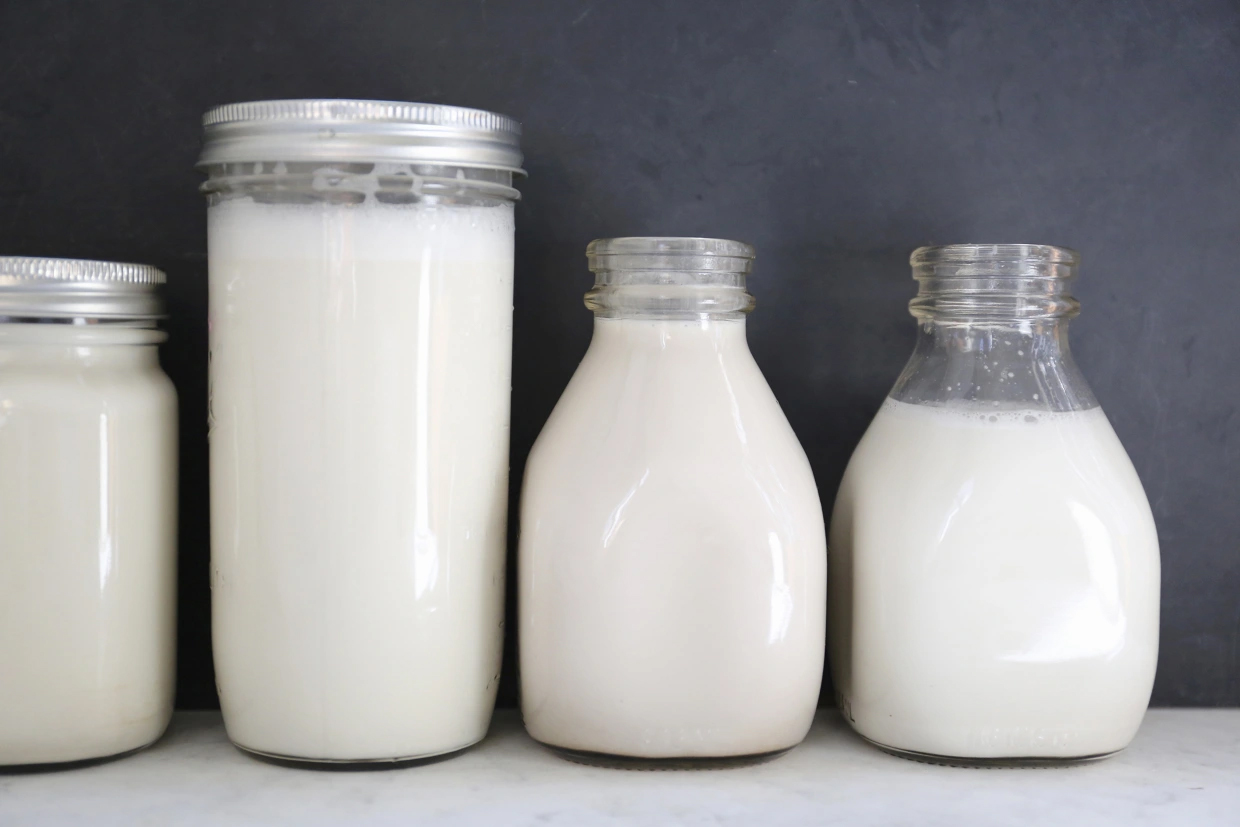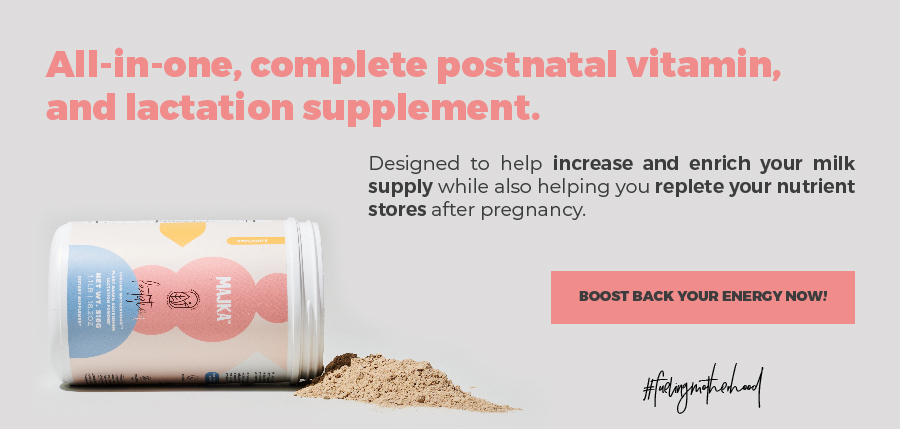
Nowadays there are many options and products that promise to bring the best nutrition for your family, which can make it confusing to know what to choose.
In this article, we will tell you about the impact that consuming cow’s milk and/or vegan milk can have on your baby; as well as when to introduce them, so you can make a more informed decision that you feel comfortable with.
Remember to always keep your healthcare provider close to know what is best for your family.
How can I know if my baby is lactose intolerant?
First of all, let us tell you that lactose intolerance is the reduced ability to digest milk sugars. It is very common, and it’s due to insufficient amounts of the gut enzyme called lactase.
If your baby is consuming lactose when he/she is lactose intolerant, this can produce symptoms such as diarrhea, vomit and stomach pain, passing wind and crying when passing poop, irritability, failure to settle at feeding times and/or coming on and off the breast. If your baby is having these symptoms call your doctor in order to know how to proceed.
The good news is that lactose intolerance in babies could not be a permanent thing as it can come after a sickness or with a certain amount of lactose consumption and if it is permanent, there are always ways to get alternative choices to have a healthy and happy life.
Does breastmilk affect lactose intolerant babies?
An important thing to mention is that breast milk naturally contains lactose, whether you consume it on your diet or not, so you cannot make a lactose-free breastmilk.
As lactose can be found in breastmilk, your baby could be exclusively breastfed and still be lactose intolerant, but this does not mean that you have to stop breastfeeding unless it is causing dehydration or poor growth to your baby, which is a rare case.
If your doctor does recommend to stop breastfeeding as a result of your baby being lactose intolerant you can switch to a lactose-free formula that will keep your baby healthy. Ask your healthcare provider for the right choice regarding your child’s case.
Is there a vegan formula?
Formula has been studied and tried out to be as equal as possible to breastmilk, so every baby can have its benefits, and it also brings an opportunity to meet different needs such as lactose-free feeding and a plant based diet for example.
*Not every formula is the same and a lactose-free formula isn’t necessarily a vegan formula.
If you want to give your baby a vegan formula, and your healthcare provider says that is ok, be aware to look out for a “plant based” label, as not all soy-based formulas are 100% vegan.
*Keep in mind that maintaining a vegan diet could require some extra supplements, ask your doctor if your baby may need one if consuming a vegan formula.
When can my baby drink an alternative milk?
After your baby is one year old you can introduce cow’s milk and fortified soy beverages, which can be a part of his/her diet, but keep in mind that this products do not replace the feeding your child had in the first year of his/her life, where most of the nutrients came from breastmilk or formula; now your child needs a more diverse diet.
The Dietary Guidelines for Americans recommend the ingest of 1⅔ to 2 cup equivalents of dairy a day which can include cow’s milk and fortified soy beverages among other products such as yogurt and cheese.
Is cow’s milk healthy for my baby?
Cow’s milk should come after your baby has turned one and his/her body is ready to digest it, otherwise, this milk could cause a risk of intestinal bleeding. Cow’s milk also has many proteins and minerals that your baby will handle through his/her kidney when it is ready to do so, and not before (after 12 months of life).
Even when your baby’s body is ready to have cow’s milk, consuming too much of itcan keep your child away from other important nutrients that need to come from other products, so it’s important to maintain a diverse and balanced diet to meet your child’s nutritional needs.
Unflavored and unsweetened cow’s milk will lower the intake of extra and unnecessary sugars for your child, although whole milk can be ok since young children do have to consume fat for their development.
Keep in mind that every person is different and your child may not respond well to some foods, keep your doctor close to know what is best for your family.
Is vegan milk safe for my baby, what plant-based milk can my baby have?
Vegan milk is a beverage that is made from plants like soy, oat, rice, coconut, almond and cashew. These beverages, as we mentioned, should not be given to your baby before he/she is at least 12 months of age.
An important thing to keep in mind is that vegan milk isn’t the same as cow’s milk, which means that they contain different vitamins and minerals and replacing it as if they were equals could be deleterious to your child’s nutritional status, growth and development. Be aware of what your child needs in order to know what he/she can consume and how much of it. (this is a doctor´s called)
Which milk is healthier for my baby?
As we mentioned, every child is different and has their own needs, so what may work for other babies may not work for yours. With that being said, the overall answer that has been investigated is that cow’s milk (if your child isn’t allergic to it) is the best alternative for young children as it has key nutritional elements such as vitamin D and calcium that your child needs to develop.
In Breastfeeding 101 we are happy to bring information that will help you enjoy the journey of having a family in a more confident and healthy way.
In the following, we share with you some of the sources that made this article possible, and we of course invite you to follow all of our content to learn more about baby’s health.
Cow’s Milk and Milk Alternatives I CDC
Infant formula: Your questions answered I Mayo Clinic
Is it safe to raise my child vegan or vegetarian? I The Washington Post
Lactose intolerance in babies I Government of Western Australia
Most young children shouldn’t drink plant-based milk, new health guidelines say I CNN Health
North American Society for Pediatric Gastroenterology, Hepatology, and Nutrition Position Paper: Plant-based Milks I National Library of Medicine
NASPGHAN Position Paper: Plant-Based Milks I ResearchGate
Types of formula I NHS
What should I do if I think my baby is allergic or intolerant to cow’s milk? I NHS
Annie Rueb






